Mirador del Río
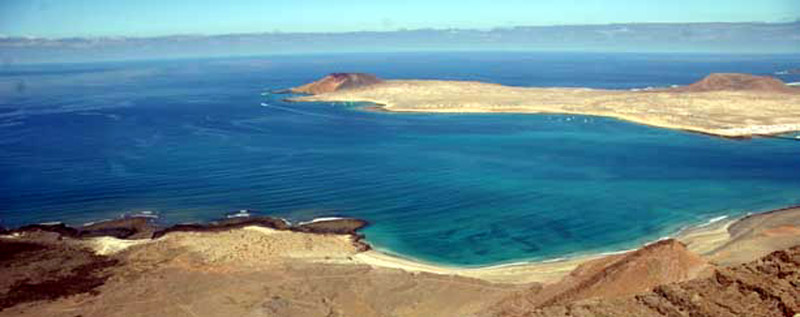
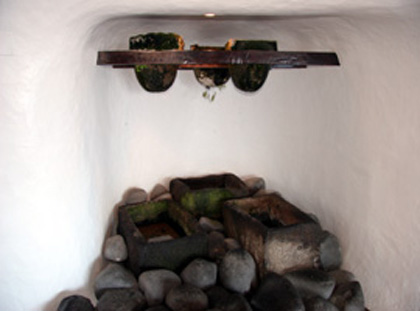
The Mirador del Rio belvedere was built by Manrique in 1973 and was considered among the four most prestigious buildings in the world to have been completed that year. Overlooking the El Rio Straights which separate Lanzarote from La Graciosa the site was originally occupied by gun batteries set up during the war between the United States and Cuba at the end of the last century.
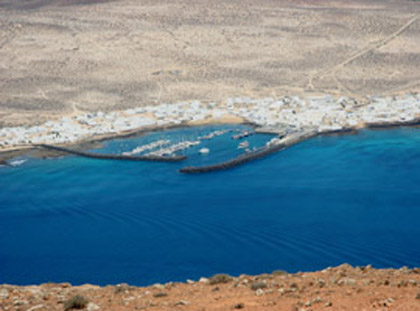
The inhabitants of the Graciosa live in Caleta de Sebo which owes its name to the 'pardela' (a local sea bird, now extinct) oil and whale blubber (sebo). There is a small tourist development, Pedro Barba, where a few people from Lanzarote and others from further afield spend their holidays. La Graciosa is the only inhabited island in the Chinijo Archipelago (Chinijo is a term of endearment used for small children in Lanzarote).
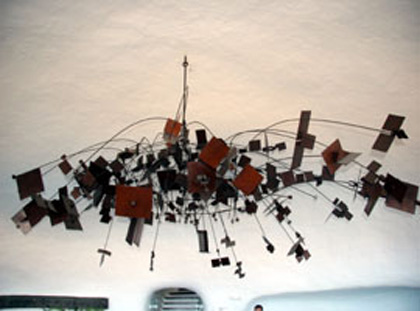
In the area formed by the Riscos de Famara, this archipelago and the waters that surround it have been declared a National Park because of the rich variety of biological life and the fact that many species of marine bird nest here. Apart from La Graciosa the Chinijo Archipelago is made up of the islets of Alegranza, Montana Clara, Roque del Este and Roque del Oeste or del Infierno. Thirteen animal species and twenty endemic plant species inhabit these islands and there is also a wide range of habitats and marine species.
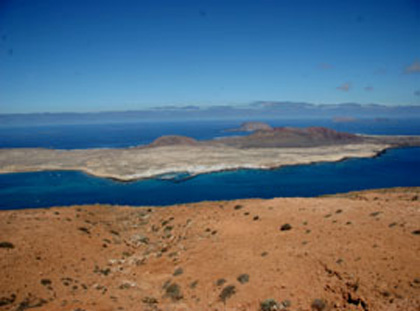
La Graciosa is the only island in the National Park that can be visited. You take the boat that leaves Orzola daily at 10. 00 and returns at 16. 00. The island has a surface area of 28 square kilometres and a population of 600 who make a living from fishing. Motorcycles are prohibited and there are only about fifty cars. There are two supermarts , one telephone booth, five bar-restaurants, a pension (Casa Enriqueta), a hamburger bar and a discotheque. It is a world in miniature, without unemployment or crime; a paradise that the locals guard jealously, making sure that nothing and nobody changes it.
